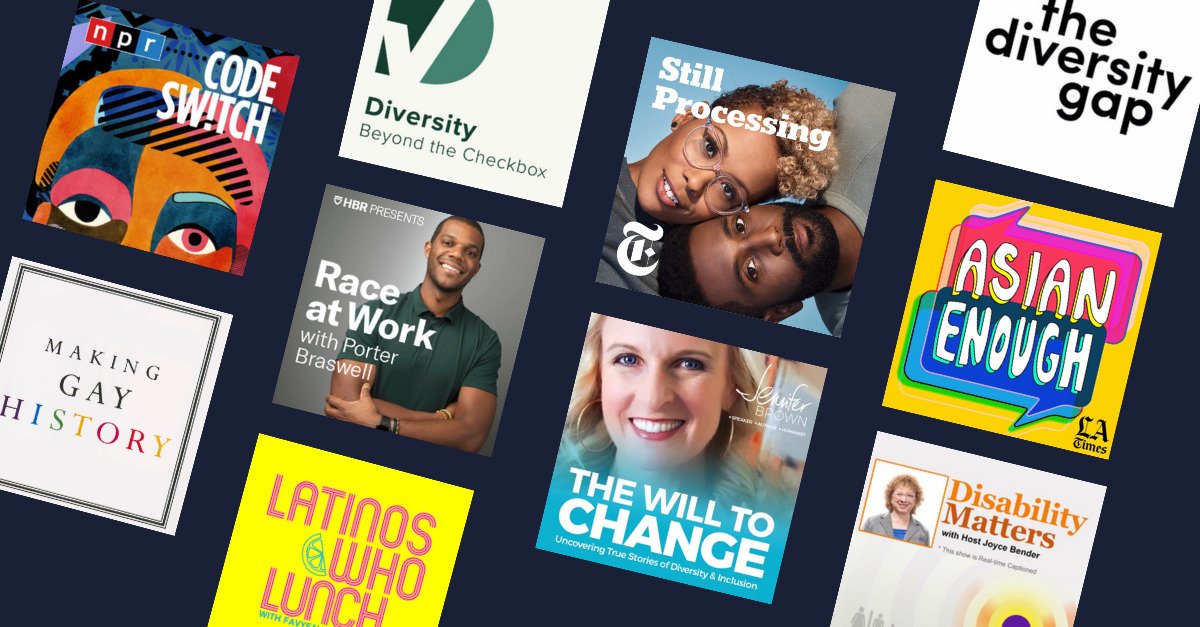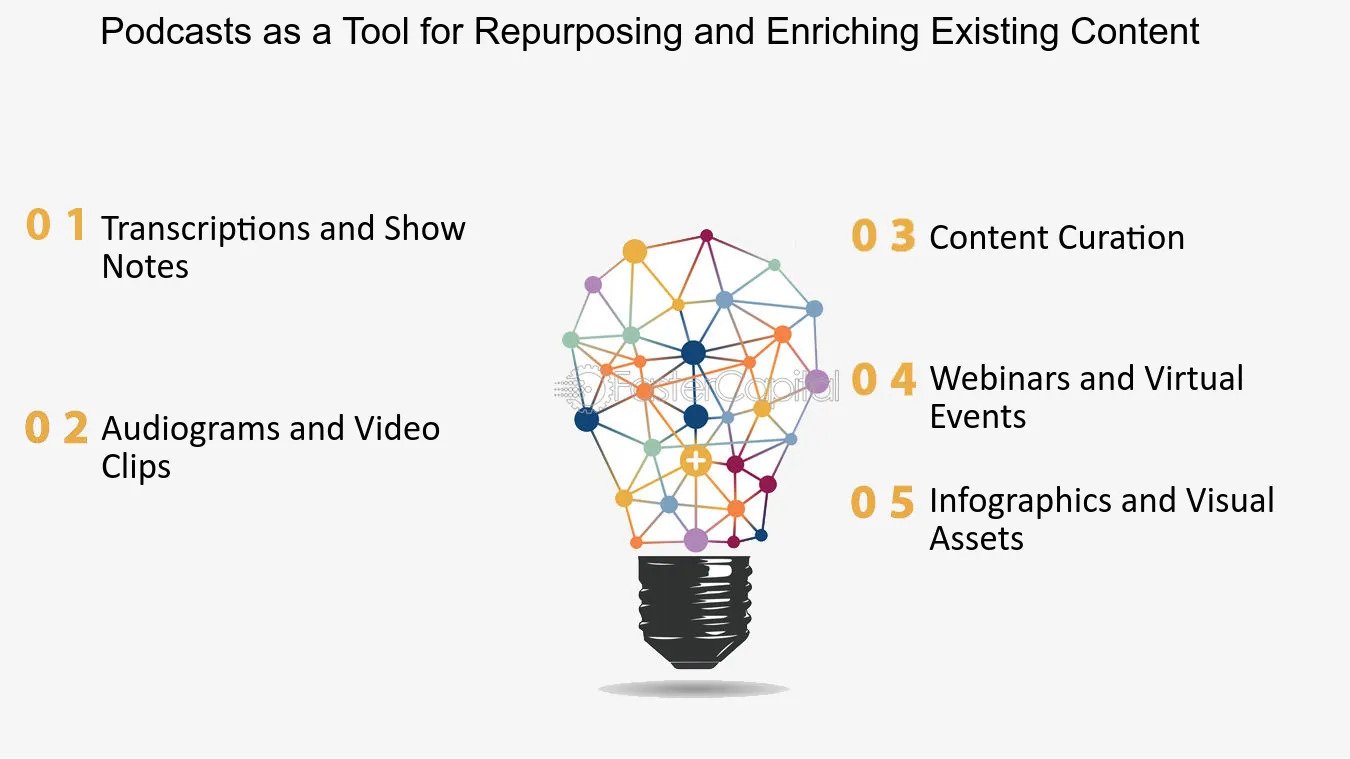
Exploring the dynamic landscape of digital media, this article delves into the role of podcasts in modern media consumption, unraveling how these audio gems are reshaping the way we engage with information and entertainmentIn an era defined by digital innovation, podcasts have emerged as a driving force in shaping modern media consumption.
From thought-provoking discussions to captivating storytelling, podcasts offer a diverse and accessible platform for individuals to engage with contenttailored to their interests. This exploration delves into the multifaceted role of podcasts, examining their impact on societal trends, the evolution of storytelling, and the transformative influence on how we consume media in the 21st century.
Why Are Podcasts So Popular?
In recent years, podcasts have risen to prominence, dominating the media landscape and captivating audiences worldwide. This phenomenon prompts an exploration into the key factors that contribute to the widespread appeal of podcasts.
- Accessibility and Convenience - Podcasts offer unparalleled accessibility, allowing listeners to engage with content anytime, anywhere. With the rise of smartphones and streaming platforms, individuals can effortlessly integrate podcasts into their daily routines, transforming mundane activities into opportunities for learning and entertainment.
- Diverse and Niche Content - One of the compelling aspects of podcasts is their ability to cater to diverse interests and niche markets. Unlike traditional media, podcasts provide a platform for specialized content, enabling creators to address specific topics and reach audiences that may be underserved by mainstream media.
- Personalized Listening Experience - In a world inundated with information, listeners appreciate the personalized nature of podcasts. The ability to curate content that aligns with individual interests fosters a sense of connection, making the listening experience more engaging and meaningful.
- Conversational and Authentic Style - Podcasts often adopt a conversational and authentic style, breaking away from the formalities of traditional media. The intimate nature of conversations between hosts and guests creates a unique connection with the audience, fostering a sense of community and familiarity.
- Empowerment of Independent Voices - The democratization of content creationis a driving force behind the podcast revolution. Independent creators can produce high-quality content without the constraints of traditional media gatekeepers, giving rise to a diverse range of voices and perspectives.
- Flexibility in Consumption Patterns - Podcasts adapt to the dynamic lifestyles of modern audiences. Whether commuting, exercising, or multitasking, listeners can consume content without being tied to a screen. This flexibility in consumption patterns aligns with the on-the-go nature of contemporary living.
The Convenience Of Podcasts For Content Consumption
Podcasts are extremely convenient, making them an excellent choice for busy folks on the go. You don't need an internet connection to enjoy your favorite episodes because you can download and listen to podcasts offline. This means that you can listen to podcasts while driving, working out, or doing housework.
Because of their ease of use and adaptability, podcasts are a popular alternative for those who want to be informed and amused but don't have the time to sit down and watch an entire episode of a TV show.
Furthermore, podcasts are frequently less time-consuming than other types of media, allowing you to rapidly catch up on the newest news or information without devoting a lot of time. Overall, one of the primary reasons for podcast popularity and success is their portability.
The Diversity Of Podcasts And Their Subjects
One of the best aspects of podcasts is their variety of subjects and ideas. There's a podcast for everyone, whether you're interested in politics, real crime, technology, or even fiction. Because of this diversity, a wide range of ideas and opinions may be expressed, making podcasts an excellent source of knowledge and entertainment.
If you're interested in politics, for example, there are podcasts that delve into the latest political eventsand debates, while true crime podcasts provide in-depth analysis and discussion of some of the world's most notorious murders.
Furthermore, podcasts are not geographically constrained, allowing content providers to reach viewers worldwide. Because of the diversity of topic matter and reach, podcasts have become an important element of the media landscape and have contributed to their appeal. There's a podcast out there for everyone, whether you want to learn something new, be entertained, or simply pass the time.
Podcast Impact On Traditional Media
Podcasts have had a tremendous impact on traditional media, altering our consumption and thinking about material. People are no longer restricted to the same few sources of information and entertainment that traditional media outletssuch as TV and radio formerly provided.
Podcasts, on the other hand, have opened up a whole new universe of information, allowing access to a broader range of ideas and opinions. This has posed a challenge to traditional media, forcing them to adapt and change in order to remain relevant.
Traditional radio broadcasts, for example, have begun to include podcasts into their programming, and some television networks have begun to produce their own podcasts to supplement their existing content.
The impact of podcasts on traditional media has been so deep that it has altered our perception of content and created new avenues for content creators to reach viewers. Overall, the advent of podcasts has been a major changer for the media industry, and the impact on traditional media will be seen for many years to come.
Podcast Role In Specialized Content Distribution
Podcasts have had a significant impact on niche content dissemination, giving a venue for in-depth exploration and discussion of specialized topics and interests. Prior to the development of podcasts, specialized material was frequently disregarded and overlooked by traditional media institutions who were primarily concerned with appealing to wide audiences.
However, the rise of podcasts has given voice to niche content, allowing communities with specialized interests to communicate and share knowledge. Podcasts dedicated to specific subcultures, such as fandom culture, allow fans to gather together and debate their favorite shows, movies, and novels, for example.
Because of this level of accessibility and community development, podcasts have become a significant component of the media landscape, allowing niche material to reach audiences it may not have previously reached. In short, podcasts have helped to democratize access to specialty material while also providing a forum for marginalized people to have their opinions heard.
The Potential For Monetization In The Podcast Industry
The podcast industry offers a lot of monetization possibilities, offering content providers a number of moneystreams. Advertising is one of the most prevalent ways to monetize podcasts, either through sponsored material or regular ad spots.
This is due to the fact that podcasts have a highly engaged audience, which is generally comprised of dedicated listeners who tune in on a daily basis to hear their favorite episodes. Premium content, such as exclusive episodes or early access to new episodes, is another option to monetise podcasts. This encourages listeners to become paid subscribers, which can provide a consistent source of cash for content creators.
Podcasts can also be used to promote and sell items and services, either directly or through affiliate marketing. The potential for monetization in the podcast industry is enormous, and as the sector grows, new revenue streams are likely to develop. Overall, the podcast businessprovides content creators with a unique opportunity to establish a dedicated following and generate cash from their content.
The Impact Of Podcasts On The Creation And Distribution Of Original Content
Podcasts have had a significant impact on the creation and dissemination of original material, allowing independent content creators to reach audiences in novel and creative ways. Independent content makers generally struggled to get attention and attract huge audiences prior to the rise of podcasts, since established media channels were focused on mass-market appeal.
However, with the rise of podcasts, independent content creators now have a direct channel to viewers, allowing them to avoid traditional gatekeepers and share their ideas and stories with the rest of the world. This has resulted in a plethora of original and innovative material, since content creators can experiment and take chances without fear of alienating large audiences.
Original content distribution via podcasts has also been facilitated by platforms such as iTunes and Spotify, which serve as a central center for podcasts to be discovered and shared with audiences. In short, podcasts have had a significant impact on the creation and distribution of original material, as well as on leveling the playing field for independent content creators.
The Relationship Between Podcasts And Social Media
Podcasts and social mediahave a close relationship, with both mediums complimenting one other in distinct ways. Podcasts may be marketed and discovered on social media, allowing content providers to reach new audiences and engage with existing listeners.
Social media is also an effective method for promoting community and engagement around podcasts, allowing listeners to connect with one another as well as with the content creators themselves. Podcasts, in turn, give social media users another stream of content to consume, helping to keep their feeds fresh and compelling.
Because of the interaction between podcasts and social media, new hybrid kinds of material have emerged, such as audio-visual podcasts, which blend the auditory experience of podcasts with the visual experience of social media.
In short, podcasts and social media have a symbiotic relationship, with each platform improving the value of the other and creating new opportunities for content providers and listeners alike.
Podcasts Future In Content Distribution
The future of podcasts in content delivery appears bright, with new technologies and platforms emerging to improve the podcasting experience. As podcasting technology develops and becomes more accessible, the number of people generating and listening podcasts is anticipated to expand, resulting in a larger range of content and more varied listeners.
The use of artificial intelligence and machine learning is also anticipated to play a significant part in the future of podcasts, assisting in the personalization of suggestions, automating transcriptions, and improving accessibility for individuals with impairments.
Furthermore, podcast integration with other forms of media, such as virtual reality and augmented reality, is likely to become increasingly common in the future, giving listeners with new and novel ways to engage with podcasts. With new opportunities and technology developing all the time, the future of podcasts in content distribution is bright, and it is an area that will continue to evolve and grow in interesting new directions.
Reasons To Add Podcasts To Your Digital Marketing Strategy
Podcasts have emerged as a powerful tool in the realm of digital marketing, offering unique opportunities to connect with audiences in a more personalized and engaging way. Here are compelling reasons why adding podcasts to your digital marketing strategy can be a game-changer.
Humanizing Your Brand
Podcasts provide a platform for brands to humanize their image. Through conversations, storytelling, and expert interviews, brands can showcase the human side of their operations, fostering a deeper connection with audiences. The authentic and relatable nature of podcasts helps break down barriers, making your brand more approachable.
Expanding Reach Through Auditory Engagement
With the rise of audio content consumption, podcasts offer a novel way to expand your reach. By tapping into the growing audience of podcast listeners, you can connect with individuals who may not engage with traditional forms of digital content. This auditory engagement adds a layer of accessibility, allowing users to consume your message while multitasking or during activities that don't involve screen time.
Niche Targeting And Specialized Content
Podcasts enable brands to tailor content to niche audiences, addressing specific interests and industry topics. This targeted approach enhances the relevance of your content, attracting a more engaged and loyal audience. Whether discussing industry trends, providing expert insights, or sharing success stories, podcasts allow you to position your brand as an authoritative voice in your niche.
Building Thought Leadership
Positioning your brand as a thought leader in your industry is a key objective for digital marketing. Podcasts provide an ideal platform for in-depth discussions, interviews with industry experts, and the exploration of emerging trends. By consistently delivering valuable and insightful content, your brand can establish authority, gaining the trust and respect of your target audience.
Seamless Integration With Other Marketing Channels
Podcasts seamlessly integrate with other marketing channels, creating a cohesive brand experience. Transcripts, highlights, and teaser clips can be repurposed for social media, blogs, and email marketing, maximizing the impact of your podcast content across various platforms. This synergy strengthens your overall digital marketing strategy, ensuring a consistent and resonant brand message.
The Role Of Podcasts In Modern Media Consumption - FAQs
How Have Podcasts Influenced The Evolution Of Storytelling In The Digital Age?
Podcasts have transformed storytelling by providing a platform for immersive and diverse narratives, allowing creators to experiment with formats and engage audiences in new and compelling ways.
What Impact Do Podcasts Have On Societal Trends And Conversations?
Podcasts have a significant impact on societal trends, influencing conversations and providing a space for in-depth discussions on various topics, fostering a sense of community among listeners.
What Role Do Podcasts Play In Connecting Global Audiences?
Podcasts serve as a global connector, transcending geographical boundaries and fostering a sense of community among listeners worldwide, promoting cross-cultural understanding.
How Do Podcasts Contribute To The Educational Landscape?
Podcasts contribute to education by offering a platform for informative and thought-provoking content, making complex topics accessible and promoting lifelong learning.
How Can Businesses Leverage Podcasts In Their Marketing And Communication Strategies?
Businesses can leverage podcasts for marketing by creating branded content, engaging with their target audience in a more personal way, and staying relevant in the dynamic landscape of modern media consumption.
Final Thoughts
Podcasts stand as pillars of influence in the ever-evolving landscape of modern media consumption. Their ability to transcend traditional boundaries, fostering a global community of listeners, underscores their significance. As we navigate the digital age, the role of podcasts in modern media consumption not only entertain but also educate, challenge perspectives, and provide a platform for underrepresented voices.
The immersive and personalized nature of this medium ensures its continued relevance, making podcasts an integral part of our daily lives. The role they play in shaping narratives, sparking conversations, and creating a sense of connection marks a paradigm shift in how we engage with content, solidifying podcasts as a cornerstone of contemporary media consumption.

